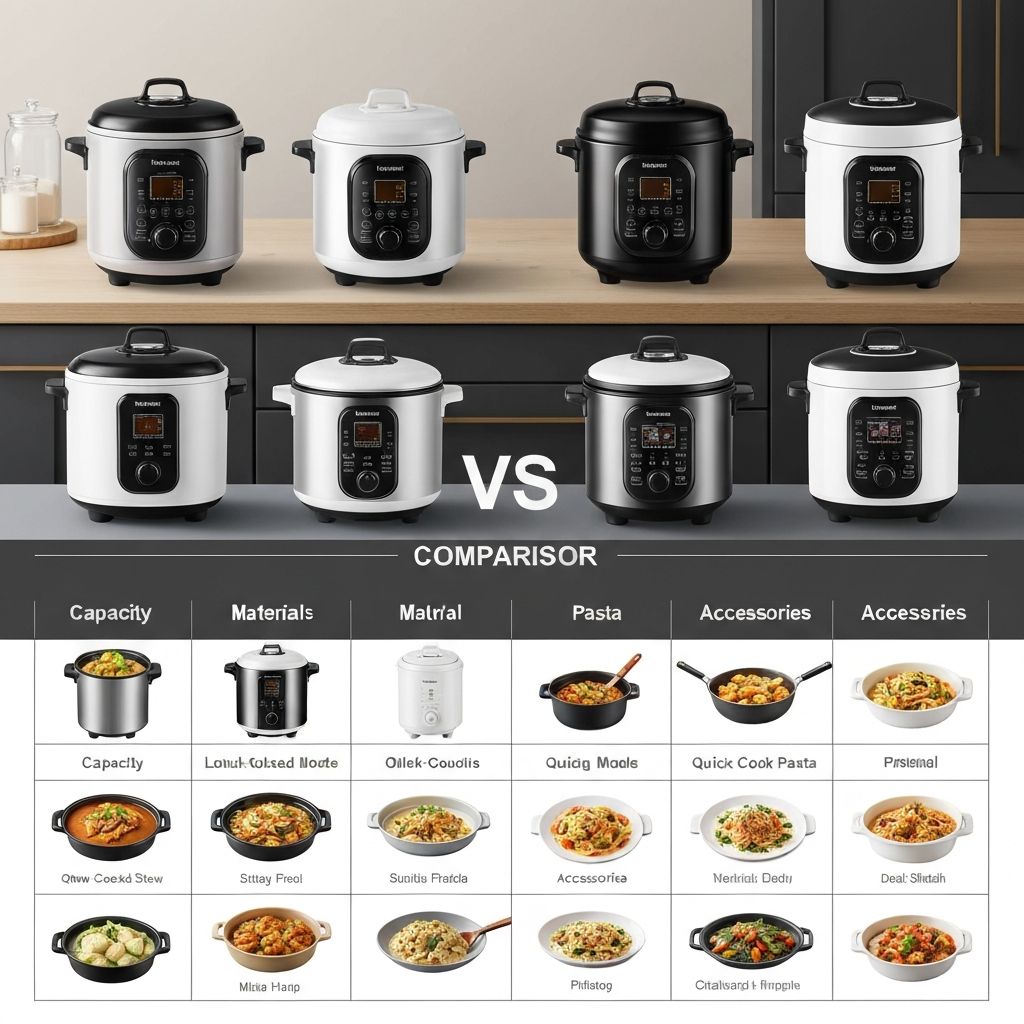Multicooker vs Slow Cooker: Which is Better?

Both multicookers and slow cookers promise convenient, hands-off cooking, but they work in fundamentally different ways. Understanding their strengths and limitations will help you choose the right appliance for your cooking style and needs.
Speed: The Biggest Difference
Multicookers use pressure to cook food quickly - a pot roast that takes 8 hours in a slow cooker is done in 45 minutes. Slow cookers, as the name suggests, cook low and slow over 4-10 hours. If you forget to start dinner prep in the morning, a multicooker saves the day. If you prefer set-it-and-forget-it morning prep, a slow cooker excels.
Versatility and Functions
Multicookers are the Swiss Army knives of kitchen appliances. Beyond pressure cooking, they sauté, steam, make yogurt, cook rice, and some even air fry. Slow cookers do one thing - slow cook. However, this simplicity means fewer buttons to navigate and less learning curve for beginners.
Texture and Flavor Development
Slow cookers excel at developing deep, complex flavors through long, gentle cooking. The extended time allows flavors to meld beautifully. Multicookers produce tender results quickly but may not achieve the same depth of flavor in some dishes. However, using the sauté function before pressure cooking helps build flavor layers.
Energy Efficiency
Multicookers use significantly less energy due to shorter cooking times. A slow cooker running for 8 hours uses more electricity than a multicooker running for 30 minutes, even though slow cookers use low wattage. For eco-conscious cooks, multicookers have the edge.
Convenience and Flexibility
Slow cookers offer true set-and-forget convenience - add ingredients in the morning, come home to dinner. Multicookers require you to be home for the quick release (though some models have automatic release). However, multicookers offer more flexibility if your schedule changes - you can start cooking when you get home.
Learning Curve
Slow cookers are incredibly simple - just add ingredients, set the time, and walk away. Multicookers have more functions and settings to learn, including understanding pressure cooking techniques. However, once mastered, multicookers offer more cooking possibilities.
Best Uses for Each
Slow cookers shine for: tough cuts of meat, soups and stews, dips and appetizers for parties, and recipes where you want to start cooking in the morning. Multicookers excel at: quick weeknight dinners, cooking dried beans without soaking, making yogurt, cooking rice, and any recipe where you need speed.
Cost Considerations
Basic slow cookers start around $30, while multicookers typically start at $80-100. However, a multicooker can replace several appliances (rice cooker, steamer, yogurt maker), potentially saving money and counter space in the long run.
The Hybrid Solution
Many modern multicookers include a slow cook function, offering the best of both worlds. While they may not slow cook quite as evenly as dedicated slow cookers, they provide flexibility for different cooking scenarios. This makes multicookers an excellent choice for those wanting maximum versatility.
Conclusion
There's no universal 'better' choice - it depends on your lifestyle and cooking preferences. If you value speed, versatility, and energy efficiency, choose a multicooker. If you prefer simple, hands-off cooking and have time for long cooking sessions, a slow cooker might be perfect. Many home cooks find room for both, using each for its strengths. Consider your typical weekday routine, favorite recipes, and kitchen space to make the best choice for your needs.